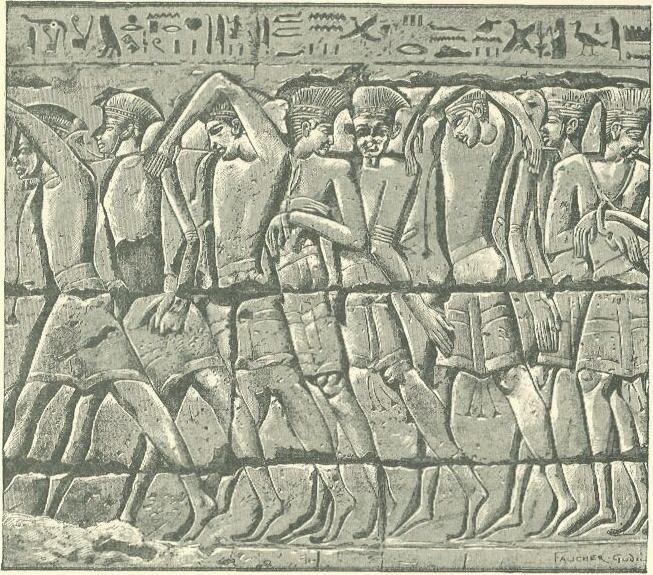Who were the Philistines, where and when did the Philistines arrive in Canaan?
The origin of the Philistines is a topic of ongoing research and discussion among historians and archaeologists. According to the Bible, the Philistines were one of the Sea Peoples who invaded Egypt and later settled in the southern coastal plain of Canaan, an area known as Philistia, which includes the five cities of Gaza, Ashkelon, Ashdod, Ekron, and Gath.


Archaeological evidence and ancient Egyptian records also connect the Philistines to the Sea Peoples, a confederation of seafaring raiders of the eastern Mediterranean, who attacked ancient Egypt during the end of the Bronze Age around 1200 BCE. One of these groups was called the Peleset in Egyptian inscriptions, a name that is often associated with the Philistines.
The exact origins of the Philistines are still debated. Some archaeological evidence, including distinct pottery styles and changes in dietary practices (like the appearance of pork), suggest an Aegean origin, possibly from Cyprus, Crete, or the Greek mainland. The Philistines appear to have had advanced knowledge of ironworking, further linking them to the Aegean region.
However, recent DNA analysis of human remains from a Philistine archaeological site provides evidence that supports an origin in southern Europe. A study published in the journal Science Advances in 2019 showed that the Philistines descended from people in Greece, Sardinia or even Iberia (modern Spain and Portugal). This research supports the idea of a large-scale migration of people from the southern European coast during the Bronze to Iron Age transition.
By the 10th century BCE, the Philistine culture seems to have been largely absorbed into the local Canaanite culture. However, they remained a distinct entity politically and are frequently mentioned in conflict with the Israelites in the biblical narrative.

